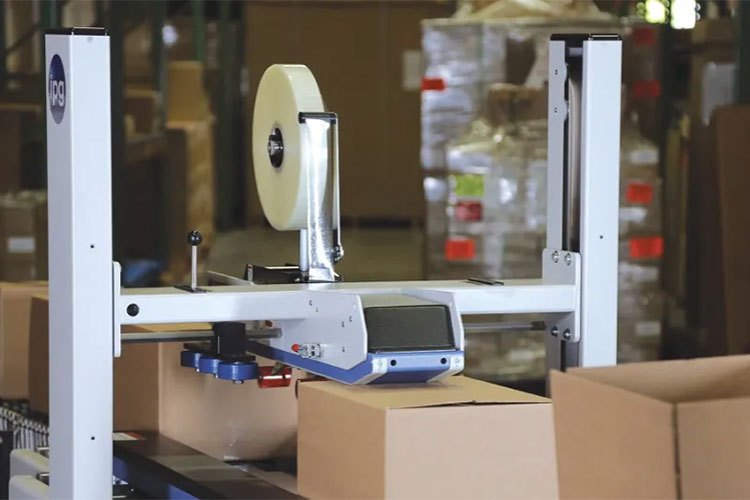Efficiency and reliability are key factors in your packaging operations, which is why packaging equipment like case sealers are essential. Whether you’re in the food industry, electronics, or retail, understanding how case sealers work can significantly enhance your packaging operations. In this post, we’ll explore what case sealers are, their types, benefits, and considerations for choosing the right one for your business.
What are Case Sealers?
Case sealers are machines designed to securely seal cardboard boxes or cases for storage and shipment. They play a crucial role in the packaging line by ensuring that products are protected during transport and that packaging is completed quickly and efficiently. Case sealers can be semi-automatic or fully automatic, depending on the needs of the operation.
Types of Case Sealers
Semi-Automatic Case Sealers:
These machines streamline the sealing process while still requiring some manual input. Operators typically load the boxes onto the machine, which automatically seals them using adhesive tape or glue. Semi-automatic sealers strike a balance between efficiency and cost, making them a popular choice for medium-volume operations.
Fully Automatic Case Sealers:
These high-speed machines are designed for high-volume packaging lines. They can automatically form, fill, and seal boxes without any manual intervention, allowing for maximum efficiency. Fully automatic case sealers are ideal for large-scale operations that require quick turnaround times.
Benefits of Using Case Sealers
Increased Efficiency:
Case sealers significantly speed up the packaging process, allowing businesses to handle larger volumes of products in less time.
Consistent Sealing:
Automated case sealers provide uniform seals, reducing the risk of packaging failures and ensuring that products remain secure during transit.
Cost-Effectiveness:
By optimizing the packaging process, case sealers help reduce labor costs and material waste, ultimately leading to higher profitability.
Enhanced Product Protection:
Proper sealing prevents contamination and damage, ensuring that products arrive at their destination in optimal condition.
Key Considerations When Choosing a Case Sealer
Production Volume:
Assess your production needs to determine whether a manual, semi-automatic, or fully automatic case sealer is the best fit.
Box Size and Type:
Consider the types of boxes you will be sealing. Some case sealers are designed to handle specific sizes or styles, so ensure compatibility.
Sealing Method:
Case sealers can use tape, glue, or other adhesives. Choose a sealing method that aligns with your product requirements and industry standards.
Space Constraints:
Evaluate your packaging line layout to determine how much space you have for a case sealer. Some machines require more floor space than others.
Budget:
Finally, consider your budget. While it’s tempting to choose the cheapest option, investing in a quality case sealer can save you money in the long run through increased efficiency and reduced waste.
Wrapping It Up
Understanding case sealers is essential for any business involved in packaging. These machines not only streamline the sealing process but also enhance the overall efficiency of your packaging line. By considering your specific needs and production volume, you can choose the right case sealer to optimize your operations. Whether you’re a small business or a large-scale manufacturer, investing in the right packaging equipment will pay dividends in the long run.




